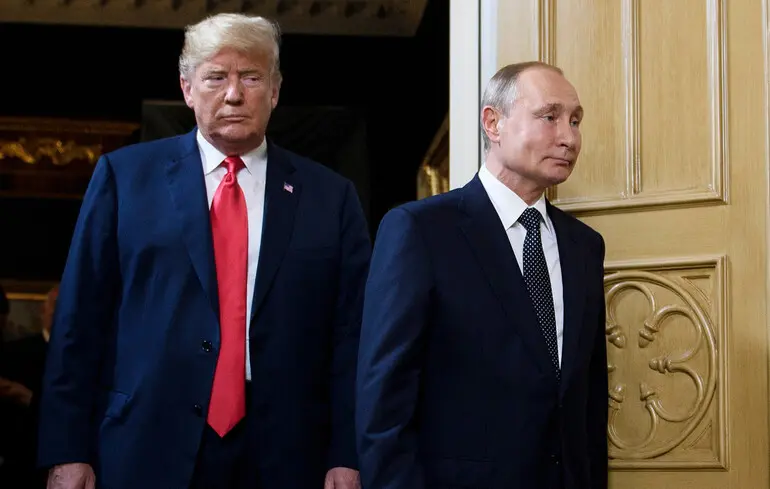Trump’s Meeting with Putin in Alaska: A Diplomatic Gamble Between Hope and Fear for Europe and Ukraine

The prospect of a scheduled meeting between former U.S.
President Donald Trump and Russian President Vladimir Putin happening in Alaska has sparked unprecedented concern among Ukrainian diplomats, European leaders, and geopolitical analysts.
This summit, burdened with history and unspoken tensions, is not just another diplomatic event — it has become a litmus test for the international community’s ability to handle the ongoing conflict fueled by Russia’s aggression and its implications for Ukraine.
While Trump has assured Ukrainian President Volodymyr Zelensky and allies that he will not discuss territorial divisions during talks with Putin, the realities leading up to the summit reveal many uncertainties and potential pitfalls that could threaten Ukrainian and European security.
Experts warn that, given Russia’s strategic playbook and historical interactions, manipulation and complex diplomatic tactics remain high risks.
Past Trump-Putin summits, especially in 2018, demonstrated that the U.S.
leader is susceptible to psychological and diplomatic provocations, especially around Russia-related issues.
Western efforts to dissuade Trump from entertaining unverified peace arrangements are countered by Moscow’s long-term strategy to deepen influence, including plans to reassert control over Ukraine, possibly reinstating Kyiv as a Russian satellite or undermining Western unity.
Analysts highlight Putin’s adeptness at long-term patience, exploiting vulnerabilities in democratic leadership contrasted with his authoritarian resilience.
The Russian leader calculates that delays, obfuscations, and offering signals of cooperation—without genuine commitments—are effective, especially when aimed at enhancing his influence over U.S.
politics and European stability.
Moreover, Putin’s strategic goal is not merely territorial gain but maintaining a “friendly” Ukraine and preserving regional dominance, which strongly suggests his reluctance to make meaningful concessions.
Any Ukrainian withdrawals from contested territories would amount to a military and political catastrophe, reminiscent of Munich Agreements, which would severely weaken Ukrainian defenses and embolden Russian advances.
The ongoing discussions of “territorial exchanges” are viewed with skepticism, as Russia’s real agenda does not involve ceding land but manipulating Kyiv into concessions—like NATO membership, sovereignty recognition, or independent foreign and defense policy—demands that Moscow is unlikely to meet directly.
Russian political scientist Tatiana Stanovaya explains that Putin’s primary goal is control over Ukraine itself, viewing it as a “friendly” state in his own terms.
Few Kremlin experts believe Moscow is interested in significant territorial concessions, rather seeking to entrench its influence and prevent Ukrainian independence.
The Center for Eurasian Strategies notes that, while Moscow wants sanctions relief, it feels no urgency to make real compromises, using the promise of negotiations as a tool to appear progress-oriented while preserving control.
Kremlin’s diplomacy creates an illusion of progress, but carries risks of Kiev being portrayed as uncooperative, risking escalation.
Ukrainian President Zelensky resists territorial exchanges to avoid alienating domestic voters, yet during the recent period, expressions of disagreement with Trump’s stance have increased.
Trump, for his part, has issued stark statements criticizing Zelensky’s handling of the war and warning of serious consequences if Putin does not agree to a ceasefire at the Alaska summit—comments that aimed to reassure European allies but also carry dangers of alienating Ukraine further.
The risk remains that if Russia refuses to compromise, Trump’s warnings could become empty threats, and the U.S.
administration might find itself entangled in a challenging diplomatic game.
As the summit approaches, experts warn of the risks of manipulations, miscalculations, and uncoordinated moves that could exacerbate tensions on the eve of critical peace efforts.
Ultimately, Washington’s ability to manage this delicate diplomatic balancing act will determine the future stability of Ukraine, European security, and the broader international order.

